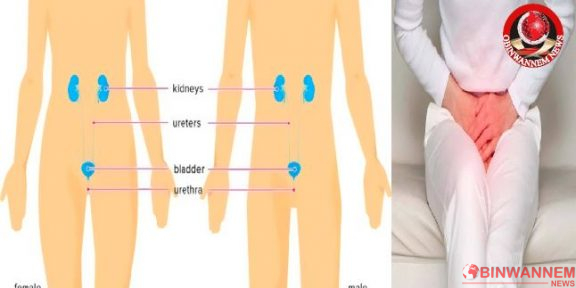Hepatitis is an inflammation of the liver. Alcohol consumption, several health conditions, and some medications can all cause this condition.
However, viral infections are the most common cause of hepatitis.
In this article, i will outline the different types of hepatitis, their common symptoms, causes, and how to treat and prevent the condition.
What is hepatitis?
Hepatitis refers to an inflammatory condition of the liver. It is commonly the result of a viral infection, but there are other possible causes of hepatitis.
These include autoimmune hepatitis and hepatitis that occurs as a secondary result of medications, drugs, toxins, and alcohol. Autoimmune hepatitis is a disease that occurs when your body makes antibodies against your liver tissue.
The five main viral classifications of hepatitis are hepatitis A, B, C, D, and E. A different virus is responsible for each type of viral hepatitis. The World Health Organization (WHO) estimates that 354 million trusted Source people currently live with chronic hepatitis B and C globally.
I.Hepatitis A
Hepatitis A is the result of an infection with the hepatitis A virus (HAV). This type of hepatitis is an acute, short-term disease.
II. Hepatitis B
The hepatitis B virus (HBV) causes hepatitis B. This is often an ongoing, chronic condition. The Centers for Disease Control and Prevention (CDC) estimates that around 826,000Trusted Source people are living with chronic hepatitis B in the United States and around 257 million people worldwide.
III. Hepatitis C
Hepatitis C comes from the hepatitis C virus (HCV). HCV is among the most common bloodborne viral infections in the United States and typically presents as a long-term condition.
According to the CDC, approximately 2.4 million AmericansTrusted Source are currently living with a chronic form of this infection.
IV. Hepatitis D
This is a rare form of hepatitis that only occurs in conjunction with hepatitis B infection. The hepatitis D virus (HDV) causes liver inflammation like other strains, but a person cannot contract HDV without an existing hepatitis B infection.
Globally, HDV affects almost 5 percentTrusted Source of people with chronic hepatitis B.
V. Hepatitis E
Hepatitis E is a waterborne disease that results from exposure to the hepatitis E virus (HEV). Hepatitis E is mainly found in areas with poor sanitation and typically results from ingesting fecal matter that contaminates the water supply. This disease is uncommonTrusted Source in the United States, according to the CDC.
Hepatitis E is usually acute but can be particularly dangerous in pregnant women.
- Causes of hepatitis
Type of hepatitisCommon route of transmission hepatitis A exposure to HAV in food or water hepatitis B contact with HBV in body fluids, such as blood, vaginal secretions, or semenhepatitis C contact with HCV in body fluids, such as blood, vaginal secretions, or semenhepatitis D contact with blood containing HDVhepatitis E exposure to HEV in food or water
- Causes of noninfectious hepatitis
Although hepatitis is most commonly the result of an infection, other factors can cause the condition.
- Alcohol and other toxins
Excess alcohol consumption can cause liver damage and inflammation. This may also be referred to as alcoholic hepatitis. The alcohol directly injures the cells of your liver. Over time, it can cause permanent damage and lead to thickening or scarring of liver tissue (cirrhosis) and liver failure. Other toxic causes of hepatitis include misuse of medications and exposure to toxins.
Autoimmune system response
In some cases, the immune system mistakes the liver as harmful and attacks it. This causes ongoing inflammation that can range from mild to severe, often hindering liver function. It’s three times more common in women than in men.
Common symptoms of hepatitis
If you are living with a chronic form of hepatitis, like hepatitis B and C, you may not show symptoms until the damage affects liver function. By contrast, people with acute hepatitis may present with symptoms shortly after contracting a hepatitis virus.
Other symptoms of infectious hepatitis include:
- fatigue
- flu-like symptoms
- dark urine
- pale stool
- abdominal pain
*loss of appetite
- unexplained weight loss
- yellow skin and eyes, which may be signs of jaundice
- How hepatitis is diagnosed
It is crucial to understand what is causing hepatitis in order to treat it correctly. Doctors will progress through a series of tests to accurately diagnose your condition.
History and physical exam
To diagnose all forms of hepatitis, your doctor will first take your history to determine any risk factors you may have.
During a physical examination, your doctor may press down gently on your abdomen to see if there’s pain or tenderness. Your doctor may also check for any swelling of the liver and any yellow discoloration in your eyes or skin.
- Liver function tests
Liver function tests use blood samples to determine how efficiently your liver works.
Abnormal results of these tests may be the first indication that there is a problem, especially if you don’t show any signs on a physical exam of liver disease. High liver enzyme levels may indicate that your liver is stressed, damaged, or not functioning correctly.
- Other blood tests
If your liver function tests are abnormal, your doctor will likely order other blood tests to detect the source of the problem. These tests can determine trusted Sources if you have infectious hepatitis by checking for the presence of hepatitis viruses or antibodies your body produces to combat them. Doctors may also use blood tests to check for any signs of autoimmune hepatitis.
- Liver biopsy
When diagnosing hepatitis, doctors will also assess your liver for potential damageTrusted Source. A liver biopsy is a procedure that involves taking a sample of tissue from your liver.
A medical professional may take this sample through your skin with a needle, meaning there is no need for surgery. They will typically use an ultrasound scan for guidance during this procedure.
This test allows your doctor to determine how infection or inflammation has affected your liver.
- Ultrasound
An abdominal ultrasound uses ultrasound waves to create an image of the organs within your abdomen. This test allows your doctor to take a close look at your liver and nearby organs. It can reveal:
- fluid in your abdomen
liver damage or enlargement
- liver tumors
- abnormalities of your gallbladder
Sometimes the pancreas shows up on ultrasound images as well. This can be a useful test in determining the cause of your abnormal liver function.
Lolo Ijeoma Njoku Obinwannem News writer / Nov 4, 2021

















